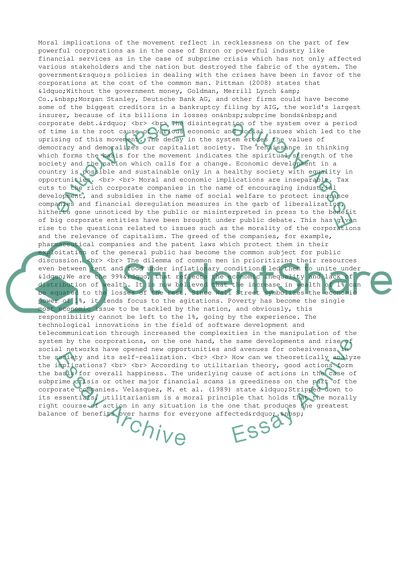Cite this document
(“Occupy wall street movement Essay Example | Topics and Well Written Essays - 1500 words”, n.d.)
Retrieved de https://studentshare.org/business/1459390-occupy-wall-street-movement
Retrieved de https://studentshare.org/business/1459390-occupy-wall-street-movement
(Occupy Wall Street Movement Essay Example | Topics and Well Written Essays - 1500 Words)
https://studentshare.org/business/1459390-occupy-wall-street-movement.
https://studentshare.org/business/1459390-occupy-wall-street-movement.
“Occupy Wall Street Movement Essay Example | Topics and Well Written Essays - 1500 Words”, n.d. https://studentshare.org/business/1459390-occupy-wall-street-movement.


